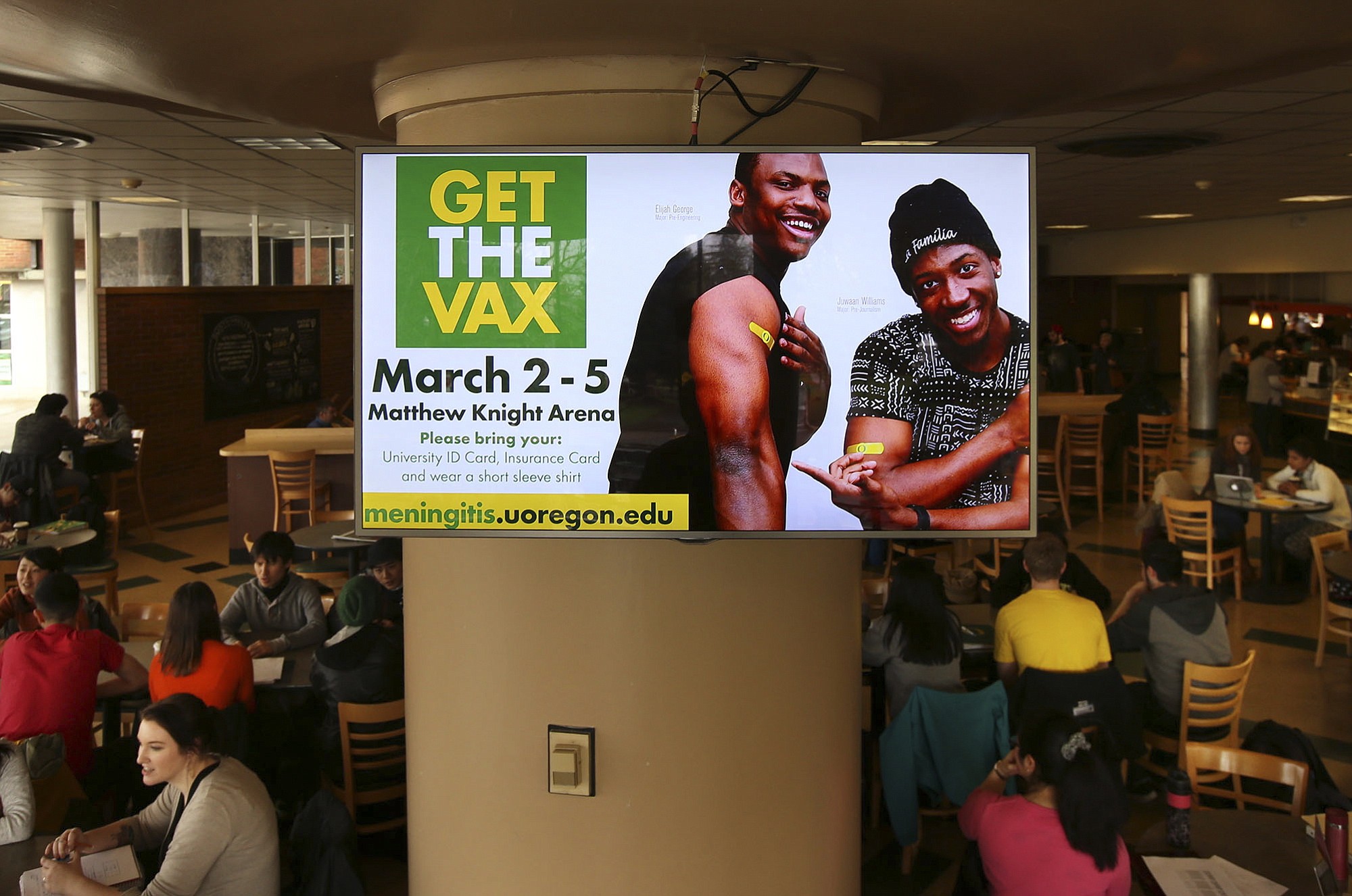Public health officials Thursday issued a plea to parents of University of Oregon students to get their children vaccinated against meningitis after a sixth student has been found infected with the bacteria that can cause the potentially fatal disease.
Dr. Paul Cieslak, director of infectious diseases for the Oregon Public Health Division, said the outbreak is far from over. He urged patents to get their children to have the meningitis B vaccine before they leave the Eugene campus, or when they get home during spring break.
The university has been conducting an intense vaccination campaign, but so far only 9,000 of the 22,000 undergraduates have gotten shots.
A university official said the administration is working to overcome young people’s tendency to ignore preventative health care. The meningitis vaccine is not mandatory.
“We are realistic about the effort needed to convince 19- and 20-year-olds to take an important action for preventative health care,” university spokeswoman Julie Brown said. “We expect this is going to take time to continue to have a steady increase in the number of students vaccinated on our campus.”
The latest case is a 20-year-old sophomore man who lives off campus, who he went to an outpatient clinic with flulike symptoms.
Students are being offered two different types of new vaccines that target the B strain of meningococcal disease, which can rapidly develop into a blood infection, or meningitis, which infects the lining of the brain or spinal cord. One vaccine offers two shots over a month. The other offers three shots over six months.
Students who have been in close contact with those who came down with the disease are given an antibiotic to kill bacteria that may be currently in their nasal passages.
There have been six cases since Jan. 13. One has died, an 18-year-old freshman woman on the acrobatics and tumbling team.
Five of the six cases, including the young woman who died, involved blood infections, Cieslak said.
“It is not possible to have been on the University of Oregon campus the last several weeks and not know there are meningococcal cases,” he said. “And the vaccine is available. Messaging is ubiquitous. Yet there are 13,000 students who didn’t get vaccinated. So we are hoping parents will persuade them.”
Cieslak said hundreds or even thousands of students have likely been exposed, though only some will come down with the disease.
Around campus there are posters featuring smiling student athletes showing off the arm where they were vaccinated, and sporting a green or gold adhesive bandage with the school logo on it. In early March, vaccinations were offered at the university’s basketball arena, and students are now being urged to go to local pharmacies. Emails have been sent to parents. The university has worked with insurance companies to be sure the vaccinations are covered.
Meningococcal disease is rare, with 1,000 to 2,000 cases per year among the U.S. population of 300 million people, but often erupts in outbreaks among young people under stress in a new place, such as college campuses and military boot camps.



